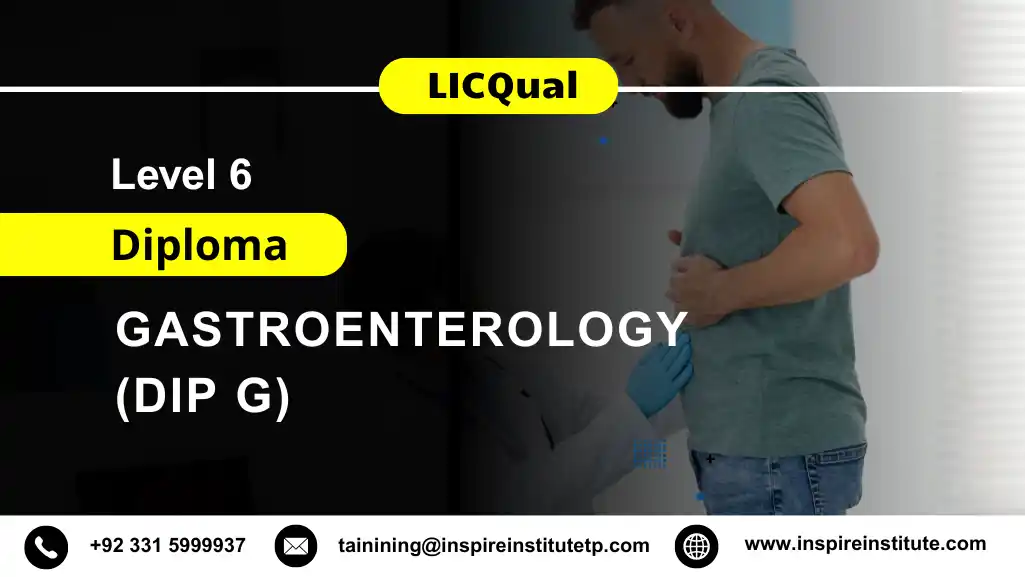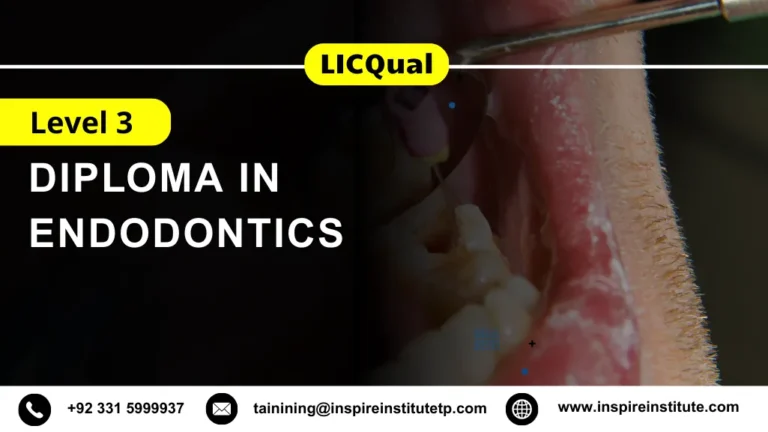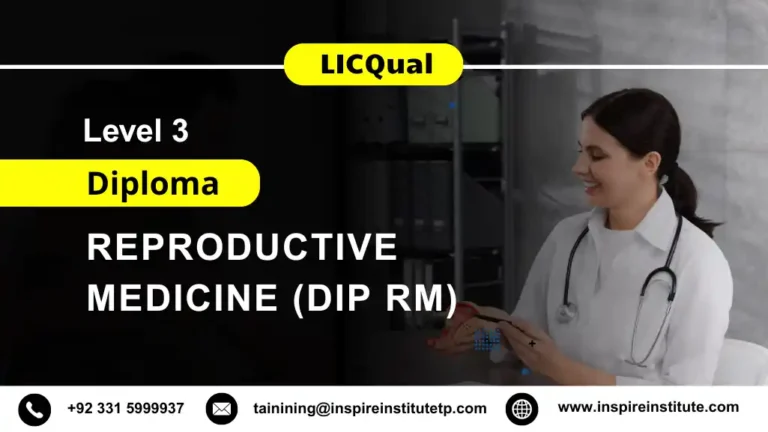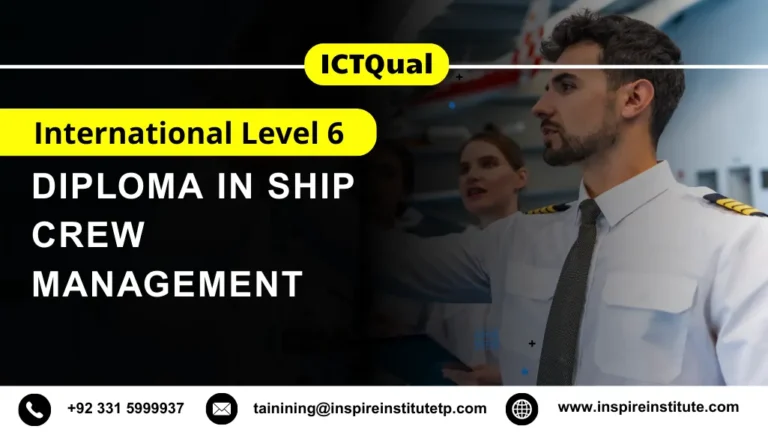LICQual Level 6 Diploma in Gastroenterology (Dip G)
The LICQual Level 6 Diploma in Gastroenterology (Dip G) equips healthcare professionals with an advanced, evidence-based foundation in digestive health. By enrolling in this gastroenterology diploma, you join a rigorous, clinically focused program designed to elevate your expertise in diagnosis, treatment, and patient care within the GI field.
This Dip G course in gastroenterology serves both as a robust credential and a pathway for career advancement. Its purpose is to bridge theoretical understanding and clinical practice: encompassing gastrointestinal physiology, pathology, endoscopy, hepatology, and research methodology. The scope extends from foundational concepts in gut function to advanced diagnostics and management strategies for complex GI disorders.
Throughout the program, you will build clinical gastroenterology skills: mastery in interpreting gastrointestinal investigations (e.g. endoscopy, imaging, biomarkers), formulation of management plans, and integration of multidisciplinary care. You will also develop research literacy, critical appraisal ability, and evidence-based decision making that align with contemporary GI practice.
This gastroenterology certification enhances your professional standing and opens doors to specialist roles, academic positions, or further subspecialty training. Whether you are a physician, gastroenterology nurse, or allied health practitioner, the advanced gastroenterology training will set you apart in a competitive healthcare environment.
Why Choose this Qualification
The LICQual Level 6 Diploma in Gastroenterology (Dip G) is a prestigious UK-based qualification designed for healthcare professionals aspiring to excel in digestive health and gastrointestinal medicine. This program combines theoretical learning with clinical application, offering participants a unique opportunity to gain specialized knowledge and practical experience in diagnosing, treating, and managing gastrointestinal disorders. Choosing this qualification means investing in a globally recognized credential that enhances your clinical competence, research ability, and career advancement opportunities in gastroenterology.
Key Reasons to Choose this Qualification
1. Advanced Knowledge in Gastrointestinal Medicine
- Gain a comprehensive understanding of gastrointestinal anatomy, physiology, and pathophysiology.
- Learn about the latest diagnostic technologies used in modern gastroenterology.
- Study the mechanisms, causes, and management of common and complex GI disorders.
- Understand the integration of nutritional, pharmacological, and surgical approaches in treatment.
- Explore evidence-based medical practices that underpin clinical decision-making.
2. Globally Recognized and Accredited Qualification
- Awarded by LICQual, a UK-recognized awarding body known for maintaining high academic standards.
- Internationally accepted qualification suitable for career progression worldwide.
- Enhances credibility for professionals seeking roles in hospitals, research, or academia.
- Aligned with global health frameworks and clinical competency standards.
- Strengthens your professional profile for international mobility in healthcare.
3. Practical Clinical Application
- Learn to apply theoretical principles directly in clinical environments.
- Develop hands-on skills in assessing, diagnosing, and managing GI patients.
- Engage in simulated clinical scenarios and case-based learning.
- Build proficiency in endoscopic procedures and interpretation of investigative results.
- Gain experience in multidisciplinary care coordination for complex gastrointestinal cases.
4. Career Advancement Opportunities
- Open pathways to senior clinical and specialist gastroenterology positions.
- Qualify for teaching, research, and hospital management roles.
- Boost your professional standing within medical institutions and healthcare organizations.
- Strengthen your eligibility for postgraduate or advanced medical training programs.
- Position yourself as a leader in gastroenterology and digestive health management.
5. Research and Evidence-Based Practice
- Develop critical thinking and analytical skills in clinical research.
- Learn how to evaluate and apply research findings to improve patient care.
- Gain exposure to academic writing and research project development.
- Understand ethical standards and methodologies for conducting medical research.
- Contribute to advancing scientific knowledge in gastroenterology through research initiatives.
6. Flexible and Assignment-Based Learning Structure
- Study through a flexible online or blended learning format.
- Complete assignments and assessments that reflect real-world healthcare challenges.
- Learn at your own pace without disrupting your professional commitments.
- Receive continuous academic support from expert tutors and assessors.
- Benefit from a practical approach designed to accommodate working healthcare professionals.
7. Professional Networking and Global Collaboration
- Connect with peers, clinicians, and experts from around the world.
- Participate in professional discussions and collaborative learning experiences.
- Gain insights into international best practices in gastroenterology.
- Build lifelong professional relationships within the global healthcare community.
- Join a network of LICQual alumni who are leading professionals in the medical field.
8. Commitment to Quality and Continuous Development
- Stay updated with advancements in gastroenterology and digestive system medicine.
- Enhance lifelong learning habits essential for professional excellence.
- Receive comprehensive support and guidance to ensure successful completion.
- Engage in continuous assessment to maintain high learning standards.
- Build confidence and competence to deliver safe and effective gastrointestinal care.
The LICQual Level 6 Diploma in Gastroenterology (Dip G) is a strategic step toward advancing your expertise and career in digestive health. The qualification not only equips you with in-depth medical knowledge but also sharpens your clinical reasoning, research abilities, and practical application skills. With its global recognition, flexible learning structure, and strong clinical focus, this program empowers you to become a confident, capable, and compassionate gastroenterology professional prepared to meet the evolving challenges of modern healthcare.l competence, and healthcare excellence globally.
Course Overview
LICQual UK Awarding Body
Average Completion Time:
6-24 Months
Study Units: 6 Units
Evidence & Assignment Based
Mandatory Units
Who Should Take This Course
The LICQual Level 6 Diploma in Gastroenterology (Dip G) is an advanced, UK-based qualification designed for medical and healthcare professionals who aim to deepen their understanding of gastrointestinal health and disease management. This course is ideal for individuals seeking to advance their clinical practice, enhance diagnostic skills, and strengthen their academic and research competence in gastroenterology. Whether you are an aspiring gastroenterologist or a healthcare practitioner interested in digestive system disorders, this program provides the specialized knowledge, professional credibility, and career flexibility needed to excel in modern healthcare.
This Course is Suitable for
1. Medical Doctors and Physicians
- Expand expertise in diagnosing and managing gastrointestinal and hepatobiliary diseases.
- Gain advanced understanding of digestive anatomy, pathology, and clinical presentations.
- Learn to interpret endoscopic findings, imaging, and laboratory results effectively.
- Apply evidence-based approaches to patient care and treatment planning.
- Strengthen leadership in multidisciplinary gastroenterology teams.
2. Gastroenterology Trainees and Residents
- Build a solid foundation in clinical gastroenterology and hepatology practice.
- Acquire in-depth knowledge of gastrointestinal physiology and disease mechanisms.
- Participate in case-based learning to enhance diagnostic reasoning.
- Prepare for higher specialist training or fellowship programs.
- Develop competencies that meet international gastroenterology standards.
3. Nurses and Gastroenterology Practitioners
- Improve patient assessment and clinical decision-making in digestive health care.
- Understand the principles of safe and effective endoscopic and post-procedural care.
- Enhance knowledge in managing patients with chronic liver and bowel conditions.
- Gain insight into patient education, counseling, and long-term GI management.
- Develop communication and coordination skills in multidisciplinary settings.
4. Allied Health Professionals
- Suitable for dietitians, physiotherapists, and clinical pharmacists working with GI patients.
- Learn about nutritional management of gastrointestinal and hepatic disorders.
- Understand the pharmacological interventions and their clinical implications.
- Contribute effectively to multidisciplinary gastroenterology care teams.
- Strengthen collaboration and communication within integrated healthcare systems.
5. Public Health and Nutrition Specialists
- Gain specialized insight into the impact of nutrition on gastrointestinal health.
- Explore the relationship between diet, gut microbiota, and chronic digestive diseases.
- Develop strategies to promote digestive wellness at the community level.
- Contribute to research and policy initiatives in gastroenterology and nutrition.
- Enhance ability to design and evaluate public health interventions for gut health.
6. Academic and Research Professionals
- Acquire advanced understanding of gastroenterology to support teaching and academic work.
- Learn methodologies for designing and conducting clinical research studies.
- Develop critical appraisal skills for interpreting scientific literature.
- Contribute to publications and research projects in digestive system medicine.
- Enhance academic credibility within medical and scientific communities.
7. Healthcare Administrators and Policy Makers
- Understand the importance of gastroenterology services within public health systems.
- Learn to implement quality assurance and patient safety frameworks in GI care.
- Use data-driven insights to improve healthcare service delivery.
- Enhance skills in managing clinical resources and medical teams effectively.
- Contribute to strategic planning for specialized gastroenterology programs.
8. International Medical Graduates and Professionals
- Gain a globally recognized UK qualification to enhance employability.
- Learn international standards and protocols in gastroenterology practice.
- Bridge gaps between regional medical education and global healthcare systems.
- Develop skills that meet licensing and certification requirements abroad.
- Strengthen your professional profile for international career opportunities.
The LICQual Level 6 Diploma in Gastroenterology (Dip G) is designed for professionals across multiple disciplines within healthcare, providing a flexible yet rigorous academic pathway to mastery in digestive system medicine. Whether you are a clinician, researcher, educator, or healthcare manager, this course empowers you with the knowledge, clinical proficiency, and confidence to advance your career. With its strong academic foundation and global recognition, this qualification stands as an ideal choice for individuals committed to excellence in gastroenterology and patient-centered care.
Course Benefits
The LICQual Level 6 Diploma in Gastroenterology (Dip G) is a prestigious UK-accredited qualification developed for healthcare professionals, medical practitioners, and gastroenterology specialists aiming to advance their expertise in diagnosing, managing, and treating disorders of the digestive system. This assignment-based diploma combines in-depth theoretical study with evidence-based clinical practice, empowering learners to deliver safe, effective, and patient-centred care in gastroenterology. Through comprehensive modules and flexible learning, the course enhances professional competence, clinical judgment, and leadership within the field of gastrointestinal health.
Key Benefits of the Course
- Specialist Knowledge: Gain an in-depth understanding of gastrointestinal anatomy, physiology, and pathology; explore conditions such as liver diseases, inflammatory bowel disease, peptic ulcers, and gastrointestinal cancers; study diagnostic techniques including endoscopy, imaging, and laboratory analysis; learn about pharmacological and nutritional management in gastroenterology; and understand the principles of gastroenterological surgery and post-operative care.
- Practical Application: Develop advanced clinical skills through evidence-based assignments and real-world case studies; enhance your ability to assess, diagnose, and treat a broad spectrum of gastrointestinal disorders; strengthen clinical reasoning for complex digestive conditions; collaborate effectively within multidisciplinary healthcare teams; and apply best practices to improve patient outcomes and quality of care.
- Recognised Qualification: Earn a UK-accredited Diploma in Gastroenterology (Dip G) that validates your professional expertise; gain international recognition aligned with global healthcare standards; enhance eligibility for postgraduate studies, medical board certifications, and advanced training programs; build credibility among healthcare institutions, hospitals, and universities; and obtain a qualification respected for its academic and clinical excellence worldwide.
- Flexible Learning Pathway: Study through a self-paced, assignment-based format tailored for working healthcare professionals; access comprehensive digital materials designed for effective independent learning; receive personalised academic guidance and mentoring from experienced faculty; balance your professional commitments while progressing academically; and enjoy an interactive online learning environment that supports continuous engagement and knowledge retention.
- Evidence-Based Training: Stay updated with the latest research and clinical developments in gastroenterology; critically evaluate and apply scientific evidence to clinical practice; understand the role of evidence-based medicine in gastrointestinal diagnostics and therapy; implement internationally recognised treatment protocols and guidelines; and participate in research projects that promote innovation and safe medical practice.
- Career Development: Expand your career opportunities across hospitals, clinics, research centres, and academia; prepare for roles such as Gastroenterology Specialist, Clinical Consultant, Research Officer, or Lecturer; enhance your credentials for higher education and fellowship programs; increase employability in both local and international healthcare systems; and establish yourself as a competent and knowledgeable professional in gastroenterology.
- Enhanced Patient Impact: Deliver compassionate, evidence-based care to patients with digestive system disorders; manage gastrointestinal diseases effectively through holistic treatment approaches; educate patients on preventive care, nutrition, and lifestyle management; ensure accurate diagnosis and ethical treatment practices; and contribute to improving patient satisfaction, recovery rates, and long-term digestive health.
- Professional Growth: Strengthen leadership, analytical, and clinical decision-making skills; improve communication and collaboration across medical disciplines; build confidence in handling complex gastroenterological cases; promote lifelong learning through reflective and self-directed professional development; and cultivate a culture of excellence, integrity, and innovation in healthcare delivery.
The LICQual Level 6 Diploma in Gastroenterology (Dip G) stands as a transformative qualification for professionals committed to advancing their clinical and academic capabilities in gastroenterology. By combining theoretical excellence with practical expertise, it equips learners to excel in their careers, enhance patient care, and contribute to medical innovation within the global healthcare landscape.
Eligibility Criteria
The LICQual Level 6 Diploma in Gastroenterology (Dip G) is a UK-accredited qualification designed for healthcare professionals, medical practitioners, and aspiring specialists aiming to advance their knowledge and clinical expertise in the field of gastroenterology. This assignment-based diploma integrates advanced theoretical understanding with practical application, equipping learners with the skills to assess, diagnose, and manage a wide range of gastrointestinal disorders effectively. The programme focuses on enhancing clinical reasoning, evidence-based practice, and patient-centred care to prepare learners for leadership roles in gastroenterological healthcare and research.
Educational Background:
Applicants should possess a recognised qualification in medicine, nursing, healthcare, or a related clinical field with a focus on gastroenterology or internal medicine. A Level 5 diploma or an equivalent qualification in healthcare sciences, medical technology, or healthcare management may also be accepted. Candidates holding international medical or allied health qualifications will be evaluated individually to ensure alignment with UK academic and professional standards.
Professional Experience:
A minimum of one year of experience in healthcare, clinical practice, gastroenterology, or a related medical discipline is recommended. Prior exposure to gastrointestinal diagnostics, patient management, or clinical research will provide a strong foundation for study. However, motivated applicants with a keen interest in digestive system health, clinical diagnostics, and gastroenterological procedures are encouraged to apply, even if they have limited direct experience.
Age Requirement:
Applicants must be at least 18 years of age at the time of enrolment. This ensures that learners demonstrate the maturity, ethical awareness, and professional responsibility necessary for advanced study and clinical decision-making in gastroenterology.
Language Proficiency:
As the programme is taught entirely in English, applicants must demonstrate strong proficiency in reading, writing, and verbal communication. Non-native English speakers are recommended to have an IELTS score of 6.0 or equivalent to ensure full engagement with the academic materials, discussions, and written assignments.
Technical Requirements:
Learners should have access to a reliable computer or laptop with a stable internet connection to participate in online learning activities, access course materials, and submit assignments. Basic computer literacy skills—including document preparation, research, data analysis, and use of communication platforms—are essential for successful completion of the programme.
Required Documents:
Applicants must submit the following documents as part of the registration and admission process:
A valid passport or national ID for identity verification.
Certified copies of academic transcripts or qualification certificates.
Evidence of professional experience in healthcare, clinical practice, or gastroenterology (if applicable).
The LICQual Level 6 Diploma in Gastroenterology (Dip G) serves as a vital pathway for healthcare professionals seeking to specialise in the prevention, diagnosis, and management of gastrointestinal disorders. By combining academic excellence with real-world clinical application, this qualification empowers learners to contribute effectively to global advancements in gastroenterological medicine and patient care.
The Qualification Process
LICQual Level 6 Diploma in Gastroenterology (Dip G)follows a structured pathway to ensure learners gain comprehensive knowledge, practical skills, and professional competence in community oral healthcare.
Step 1: Self-Assessment
Learners review the entry requirements to confirm eligibility. Candidates with a background in dentistry, oral health, or public health are encouraged to apply.
Step 2: Registration
Complete the registration process by submitting required documents such as proof of qualifications, a valid ID, and payment of enrollment fees.
Step 3: Induction
An induction session is conducted to:
- Verify learner eligibility and documentation.
- Introduce study materials, learning outcomes, and assessment procedures.
Step 4: Learning and Evidence Submission
Learners complete assignments, case studies, and practical exercises demonstrating competence in public health dentistry, community oral health assessment, preventive strategies, and program planning.
Step 5: Feedback and Revision
Assessors review submitted evidence and provide constructive feedback. Learners can revise and resubmit work to meet all required standards.
Step 6: Competence Validation
Final submissions are evaluated to confirm that learners have met all theoretical and practical learning outcomes.
Step 7: Internal Quality Assurance (IQA)
The IQA team reviews the assessment process to ensure accuracy, fairness, and compliance with international standards.
Step 8: External Verification (EQA)
External verifiers validate the authenticity and quality of learner achievements.
Step 9: Certification
Upon successful verification, learners are awarded LICQual Level 6 Diploma in Gastroenterology (Dip G), demonstrating advanced proficiency in community oral healthcare and preparing them for professional growth in dental public health, preventive dentistry, and healthcare policy.







